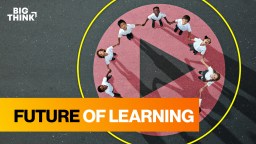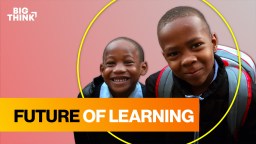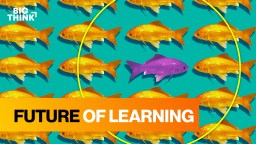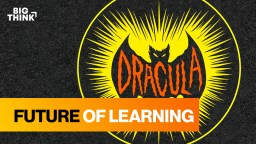This video is part of Z 17 Collective’s Future of Learning series, which asks education thought leaders what learning can and should look like in the midst and wake of the coronavirus pandemic.
COURTNEY D. COGBURN: It is much bigger than criminal justice reform although that's a critical component and was the catalyst in this particular moment. But we really need to think about this in terms of layers of oppression, interwoven oppressions. That what we observe in terms of police violence, its connections to the legacies of slavery and slave patrols in the United States, the ways in which policing is tied to educational systems and healthcare, patterns that we observe in terms of population health. All of those things are interwoven. And part of what our work is trying to do is leverage VR to think about how we can represent those relationships visually to help people better understand how a housing policy has implications for policing and violence that you might observe in a neighborhood or a community, and how that is also tied to what we're seeing in educational systems. All of these systems are interwoven, and all of them have actively oppressed black people in particular in a way that has made upward mobility nearly impossible. And it's part of what people are fighting against. So, the police are kind of a visual representation of the societal ills that cross many, many sectors, if not all of the sectors of our society.
So in virtual reality we wanted to explore the option to have people walk in someone's digital shoes. We have the adage of being able to walk a mile in my shoes, being able to walk in someone's shoes and so we wanted to create the option to walk in the digital shoes of a black male who's experiencing racism as a child, adolescent, and as an adult in different contexts to convey the complexities of how racism is encountered in one's life. And in addition to that piece we're also thinking about how to use virtual reality to help people understand not just an individual experience and how it intersects with the world and with society, but how do we take virtual reality and create an opportunity to engage with systems and structures and culture in a way that people can start to understand how our policy decisions, the ways that we structure neighborhoods, the ways that we engage in policing in communities, et cetera, have a domino effect and they are all related to each other. And that's really complicated to understand. People get entire degrees in sociology and political science and history to try and draw these connections, but we're trying to simplify what we know from data in academic work and scholarship, et cetera, and translate that into virtual reality in a way that's visual and tangible so that people can potentially better understand these complicated systems that we live and operate in. In service of them understanding racism in a deeper and more complex way.
I think the most important and powerful human superpower is critical consciousness. And that is the ability to think, be aware and think critically about the world and people around you. And I say critical consciousness quite deliberately instead of empathy. Empathy often conveys a sense of emotion and feeling bad and that's just terrible. Critical consciousness suggests that you are an engaged, intelligent human paying attention to the world around you, and it's not so much about the interpersonal 'Do I feel bad? Do I like you?'—it's more 'Do I see the world as it is? Am I thinking critically about it and engaging it?' I think if more of us embody that we would be much better off.
The most important ingredient for a great education is equipping people to explore and determine for themselves what they believe. And to push past things that they've inherited from other people, things that they've absorbed from society and media and give them an honest take as far as we understand it, here are the facts. What do you do with that information? What is the meaning that you make of that information? That is something that's very difficult to achieve educationally, and I think if we focused on that earlier and sooner and not only having our children memorize or just sort of regurgitate facts and information but instead actively and critically engage what they're consuming we would have more critically conscious citizens. But it's a skill. It's something that people develop over many years of engagement. So, I think that would be one of the most important aspects.
There have been global movements happening around Black Lives Matter, anti-blackness, I think for some time now, but the scale of the response I think is what's so surprising. That one of the largest marches outside the U.S. happened in Germany, for instance, in a mostly white crowd. That is surprising, that Norway I think there was a march. Just sort of different parts of the globe coming together around this I think just sort of speaks to people being fed up that we're all sort of being some lackluster version of who owe could be as a society, as a global society.





